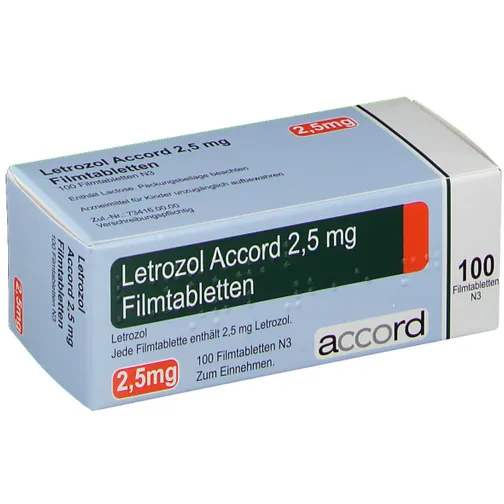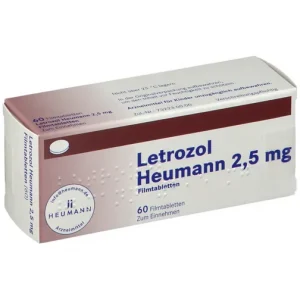Description
Special instructions
In patients with unclear postmenopausal status, levels of luteinising hormone (LH), folliculotropic hormone (FSH) and/or oestradiol should be measured prior to starting treatment to accurately determine menopausal status.
Renal failure
No data are available on the use of letrozole in patients with creatinine clearance < 10 ml/min. The potential risk and expected effect of treatment should be carefully assessed before using letrozole.
Hepatic insufficiency
In patients with severe hepatic insufficiency, the elimination half-life of letrozole is approximately two to three times longer than in healthy subjects. Such patients require closer monitoring by the physician. Therefore, letrozole should be administered with caution and after careful consideration of the potential risks and expected effects.
Effects on bone tissue
Letrozole is a potent estrogen-reducing drug. For adjuvant therapy and extended adjuvant therapy, the mean follow-up period of 30 and 49 months, respectively, is insufficient to fully assess the fracture risk associated with long-term use of letrozole. Women with osteoporosis and/or a history of fractures or with an increased risk of osteoporosis should have a thorough assessment of bone mineral density by bone densitometry before starting adjuvant therapy or extended adjuvant therapy and should be monitored for the development of osteoporosis during and after treatment with letrozole. If necessary, osteoporosis treatment or prevention should be initiated and closely monitored.
Peculiarities of the drug’s effect on driving ability or potentially dangerous mechanisms
During the treatment period, refrain from engaging in potentially hazardous activities requiring increased attention, fast motor and mental reactions (including driving or operating mechanisms).






Reviews
There are no reviews yet.